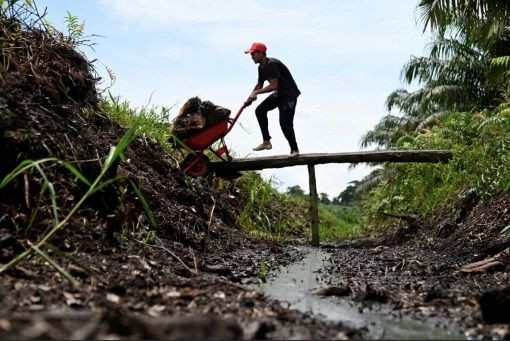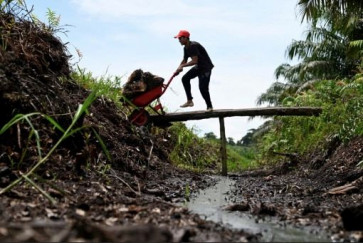Popular Reads
Top Results
Can't find what you're looking for?
View all search resultsPopular Reads
Top Results
Can't find what you're looking for?
View all search resultsSingle governing agency needed to fully harness palm oil potential
There are now at least eight ministries and dozens of other institutions that directly or indirectly manage and oversee the palm oil industry.
Change text size
Gift Premium Articles
to Anyone
P
resident-elect Prabowo Subianto has declared his commitment to processing Indonesia's abundant natural resources into higher-value products for domestic consumption and export, and one of the natural resources he has often cited as the most promising is palm oil.
This commitment is not only the most appropriate but also strategic in the long term.
Firstly, this is because palm oil is a renewable commodity, different from coal, which is currently the second-largest export, and other minerals, which are not renewable and whose production process causes pollution. The industry now directly employs about 17 million workers and involves over 5 million smallholders.
Second, palm oil, with an annual export of US$30 billion, already contributes 12 percent of total non-oil exports and 4 percent of the country’s gross domestic product. Palm oil will continue to play an increasingly vital role in the economy because the production of this commodity is relatively inexpensive. This commodity also is highly versatile and fulfills 40 percent of the global demand for vegetable oil but uses less than 6 percent of all the land cultivated globally to produce vegetable oils.
However, we will never be able to fully develop the potential of this commodity to empower the national economy if the government does not improve the governance of the whole palm oil industry value chain.
We still painfully remember the damage inflicted by the series of erratic palm oil market intervention measures launched in the first half of 2022, such as fixed price ceilings, the domestic market obligation (DMO) and even a total palm oil export ban to cope with the skyrocketing prices of cooking oil. The cooking oil debacle, which occurred even though Indonesia is the world’s largest palm oil producer, confirmed the extreme lack of cooperation and coordination within the government.
The bitter experience with the cooking oil crisis in 2022 simply reiterates the vital need for a single authoritative governing body to manage and oversee the whole palm oil industry, especially because of the expansion of its use as inputs both for food and biofuel to cope with the climate change. Managing the competition between the palm oil demand for food and for biofuel and governing the industry, which involves over 16 million hectares of plantations owned by hundreds of companies and an estimated 5 million smallholder farmers, will require effective policy coordination.


















